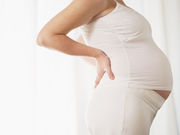But difference in risk is small, researchers say
THURSDAY, July 20, 2017 (HealthDay News) — In the long-standing debate over whether antidepressants are safe to take during pregnancy, a new study, published online July 19 in The BMJ, suggests that exposure to the drugs in the womb might increase a child’s risk of autism.
Dheeraj Rai, Ph.D., a senior lecturer in psychiatry with the University of Bristol in the United Kingdom, and colleagues analyzed data from 254,610 children aged 4 to 17 living in Stockholm between 2001 and 2011. The researchers note that 5,378 of the children were diagnosed with autism, 3,342 of the children were exposed to antidepressants during pregnancy, and 12,325 children were born to mothers with psychiatric disorders who weren’t taking an antidepressant in pregnancy.
Of the children exposed to antidepressants, 4.1 percent had been diagnosed with autism; 2.9 percent of children born to a woman with a history of psychiatric problems who didn’t take antidepressants during pregnancy developed autism (adjusted odds ratio, 1.45; 95 percent confidence interval, 1.13 to 1.85). Antidepressants were more strongly associated with cases of autism that didn’t include intellectual disability.
“The association between antidepressant use during pregnancy and autism, particularly autism without intellectual disability, might not solely be a byproduct of confounding. Study of the potential underlying biological mechanisms could help the understanding of modifiable mechanisms in the etiology of autism,” the authors write. “Importantly, the absolute risk of autism was small, and, hypothetically, if no pregnant women took antidepressants, the number of cases that could potentially be prevented would be small.”
Copyright © 2017 HealthDay. All rights reserved.








